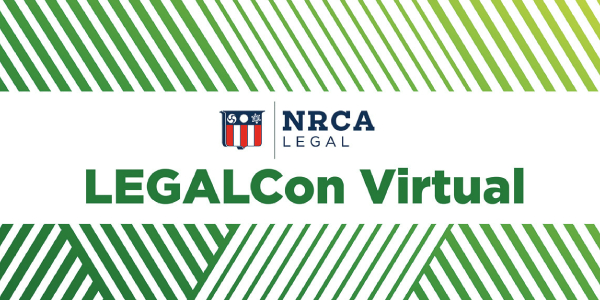How a New Supply Chain Regulation Will Impact Construction

By Trent Cotney.
Learn about which products the Uyghur Forced Labor Prevention Act (UFLPA) will have an impact on.
As you may have heard, in December 2021, Congress passed the Uyghur Forced Labor Prevention Act (UFLPA), and President Biden signed it into law. Under this new legislation, which went into effect on June 21, 2022, there will be a crackdown on goods produced in China’s Xinjiang Uyghur Autonomous Region (XUAR). In this region, forced labor among the Uyghur people is all too common, and this new law prohibits the resulting goods from entering and being used in U.S. markets.
It is essential to note that the UFLPA pertains to all goods wholly or partially manufactured or mined in that region or by entities connected to forced labor. This specification means that products provided by countries even with indirect connections to forced labor are banned from entering the United States.
What products are affected
According to the UFLPA, several product categories are linked to forced labor. These include clothing and textiles, hair products, computer parts and electronics, rail transportation equipment, and silica-based products. The four that the UFLPA is most focused on are the following:
- Cotton and products made from cotton
- Apparel
- Tomato and tomato-based items
- Silica-based products
The most concerning for the construction industry are silica-based materials (including polysilicon). As you know, silica is a critical component of tiles, concrete, glass, sealants, ceramics, mortar, bricks and other construction staples. Silica is also a key component of solar panels. In the Strategy to Prevent the Importation of Goods Mined, Produced, or Manufactured with Forced Labor in the People’s Republic of China, published by the U.S. Department of Homeland Security, there are comprehensive lists of manufacturers connected to forced labor and the materials they produce. Those that make silica-based items and solar-grade polysilicon are included.
What it means for suppliers and contractors
Now that the UFLPA is in effect, importers are under pressure to track where their materials come from and what entities have been involved in manufacturing. They must ensure that materials entering the United States have not been produced by companies using forced labor— either in the XUAR or by a company connected to that region. More details can be found in the UFLPA Operational Guidance for Importers, produced by U.S. Customs and Border Protection (CBP).
To accomplish and document this verification, importers must:
- Maintain comprehensive supply chain and transaction records.
- Create and provide a list of all entities involved in the production process.
- Provide flow charts that map every step of the material production and identify the regions where all the materials originated. Specifically for polysilicon, this means the location of the quartzite used, the location of the facility used in manufacturing, and the location of any entities that produce downstream goods.
- As necessary, provide evidence that goods were not produced by forced labor.
Importers and contractors should be aware that supplies may be seized or detained if it is difficult to determine if polysilicon was sourced from within the XUAR or outside the region. This process may very well lead to more supply chain delays.
Advice for the construction industry
Although the UFLPA went into effect on June 21, it may be months before CBP will have the staff to actively enforce the regulations. However, importers can incur civil penalties for any shipments that enter the United States and later are determined to violate UFLPA.
In addition, while the UFLPA is currently focused on a handful of problematic materials, the reach of the XUAR might be quite broad. Therefore, do not be surprised if the global supply chain is more widely impacted.
For now, importers are advised to undertake increased due diligence in their operations. They should ensure compliance with the UFLPA and guard against doing business with any companies in the XUAR or connected to the region. In the meantime, contractors must be aware of the UFLPA and be prepared to manage any resulting material delays. They should stay in close contact with their suppliers about this matter and be ready to substitute materials when possible. If you have any questions, please reach out to us.
About Trent Cotney
Trent Cotney is a partner and Construction Practice Group Leader at the law firm of Adams and Reese LLP and NRCA General Counsel. For more information, reach out to Trent at trent.cotney@arlaw.com.
The information contained in this article is for general educational information only. This information does not constitute legal advice, is not intended to constitute legal advice, nor should it be relied upon as legal advice for your specific factual pattern or situation.






















Comments
Leave a Reply
Have an account? Login to leave a comment!
Sign In